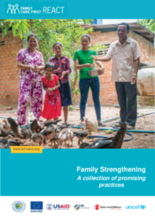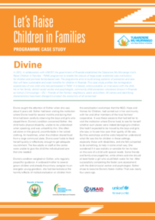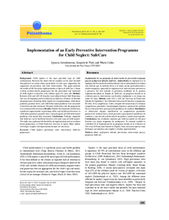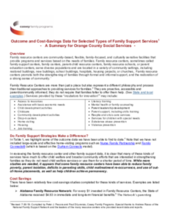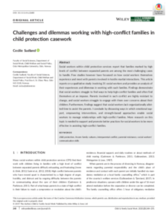Displaying 241 - 250 of 947
The purpose of the review, developed by International Child Development Initiatives, was to present an overview of (as much as possible) evidence-based promising practices in Family Strengthening interventions in Cambodia, implemented by FCF|REACT partners.
This case study profiles the reintegration experiences of one child who has participated in the Tubarerere Mu Muryango (Let’s Raise Children in Families - TMM) programme in Rwanda.
This paper presents the results of the first pilot implementation in Spain of SafeCare, a home visiting evidence-based programme for the prevention and treatment of child neglect in families with children aged 0-5 years old.
This document from Casey Family Programs reviews data on Family Resource Centers and other family support services in the US.
This secondary analysis of data describing 3,035 parents, drawn from the National Survey of Child and Adolescent Well-Being II, identified factors fostering the collaborative alliance of parents and caseworkers within the child welfare system.
This article reports on a qualitative study involving 31 social workers and provides an analysis of their experiences and dilemmas in working with families marked by high levels of conflict between separated parents.
This open access article reports on a qualitative study, which sought to retrospectively understand the contribution family group conferencing (FGC) makes to longer‐term outcomes for children at risk of entering State care and their families.
The authors of this study compared individual patterns of change in three parenting outcomes in 256 at risk parents with young children attending the group‐based Growing Up Happily in the Family program delivered in municipal social services.
In this paper, the authors describe a process used to inform the development of a parenting intervention that would have high relevance to child welfare involved parents and could then work towards proving its effectiveness.
This article compares and contrasts the services needed by families in child welfare systems with the services that families receive.

